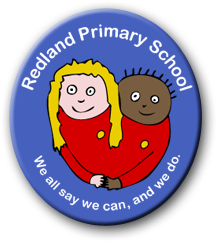For information on the separate subject areas, please use the tabs on the dropdown menu bar above.
At Redland School, we endeavour to provide the children with the necessary skills, knowledge and understanding to make informed choices about the important things in their lives. At this school we believe in the concept of skills for life and the idea that people learn new things every day. We maintain that learning should be a rewarding and enjoyable experience for everyone. We want our children to have high aspirations for their futures, to feel safe and supported and to be recognised as individuals who are the fundamental part of our school community.
Redland Primary School aims to provide all pupils, regardless of ethnicity, culture, religion, home language, family background, learning difficulties, disabilities, gender or ability, equal access to all aspects of school life and work to ensure that every child is valued fully as an individual. Teachers will make reasonable adjustments to planning and resources in order to ensure that all children are included and have equal access to learning, this may include differentiating lessons, adapting resources and providing additional support.
Redland school follows the 2014 National Curriculum as the basis for all planning in years 1 to 6, and ‘The Early Years Foundation Stage’ for pupils in FS2. From Foundation Stage, this is supplemented with the ‘WhiteRose’ scheme of work for mathematics; ‘Twinkl Planit’ scheme for Science; ‘Jasmin Real PE’ for PE, ‘Jigsaw’ for PSHE and ‘Discover RE’ for Religious Education. Please see the link below for our 2 year topic cycle.
Statutory tests are carried out in Year 6, the Phonics Screening check takes place in year 1 and the ‘Multiplication tables check’ takes place in year 4. Assessments are carried out by class teachers three times a year, and children’s progress is monitored at ‘Pupil Progress Meetings’ involving the Headteacher, SENCO and Assessment Leader. A copy of the report together with other records and workbooks are also given to the receiving teacher to ensure continuity and progression. In July every child receives a report in which the class teacher comments upon strengths and weaknesses in each of the curricular areas against a set of benchmark statements for the current year group.
